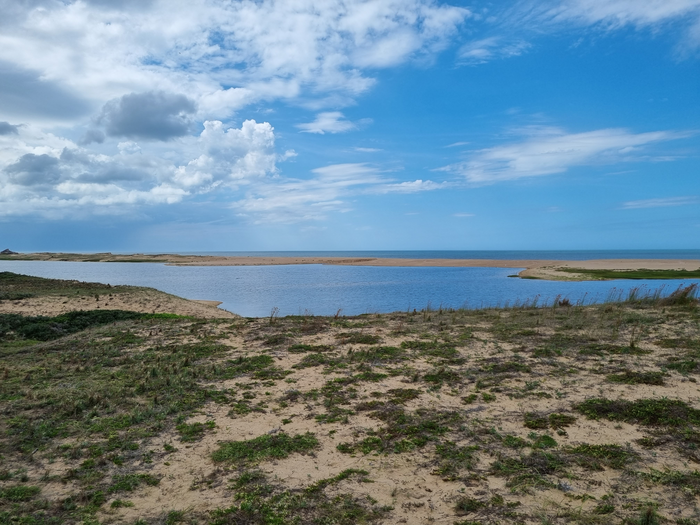The Horizon 2020 REST-COAST project, which concentrates on coastal management and large-scale restoration, held its debut Summer School workshop from March 13–15, 2023, in Maldonado, Uruguay, at the Centro Universitario Regional del Este (CURE).
 Photo from the Maldonado, Uruguay field trip. Image Credit: REST-COAST project.
Photo from the Maldonado, Uruguay field trip. Image Credit: REST-COAST project.
This key project event brought together scientists from the United States, Brazil, Uruguay, and REST-COAST pilot regions in Poland, Spain, and the United Kingdom and covered a wide range of coastal management and restoration training topics.
The workshop “Innovative research and management for coastal restoration” addressed various aspects of coastal restoration, such as project financing, the use of nature-based solutions (NbS), and the use of coupled modeling systems to evaluate risk reduction and investigate the protective function of nature in different marine systems such as lagoons, sand barriers, and estuaries/deltas.
The meeting presented a unique opportunity for experts from many countries to discuss their experiences and share case studies from their respective regions. The discussions presented an overview of coastal degradation and restoration activities at various levels and regions.
The workshop ended with a field trip to “Laguna Garzón” and “Laguna de Rocha,” two pristine conserved lagoons with distinct natural dynamics of breaching and closing sandbars. Attendees witnessed the impact of nature-based solutions on coastal restoration efforts firsthand and acquired significant insights into the region’s ecosystem and the management strategies used to safeguard it.
We had a great time discussing the diversity of study sites, quality learning of possible approaches to restoration actions, and realizing that problems/magnitudes are amazingly different from what we are used to in Europe.
Iván Cáceres, Project Manager, REST-COAST
Iván Cáceres is associated with the Catalonia University of Technology UPC-BarcelonaTech.
The Summer School workshop is an important aspect of REST COAST’s commitment to furthering the science of coastal restoration. REST-COAST intends to organize similar workshops and events in the future to foster and expand collaboration and knowledge-sharing among scientists and stakeholders globally working toward a sustainable future for coastal ecosystems.